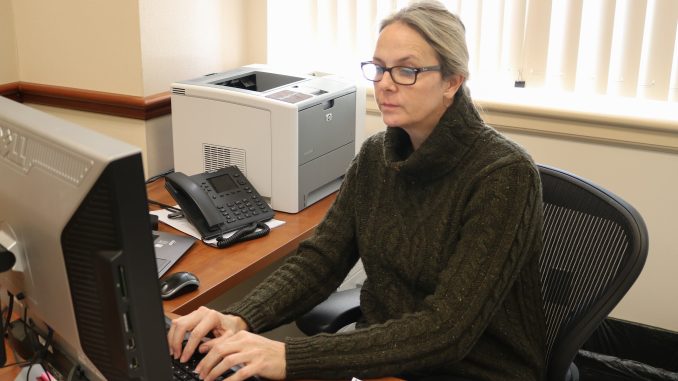
Along with Philadelphia, Temple’s Institute for Survey Research is collecting data for the Philadelphia Resident Survey, which aims to boost responses from minority and low-income populations, officials said.
The Resident Survey was the city’s way of collecting information about citizens’ perception of city services, before it was suspended almost 10 years ago due to lack of funding, said Heidi Grunwald, managing director of the Institute for Survey Research.
“When Mayor Jim Kenney took office, he commissioned the Office of Performance Management to take up the survey again,” Grunwald said.
Angelina Ruffin, the city’s director of performance management, said when the city attempted to administer the survey last year, the first round of data collection was “not representative of the city demographically.”
To remedy these issues, the city and the Institute for Survey Research are changing their strategy. Ruffin said data collection began again on Jan. 8, and will continue through Feb. 15.
“The approach we’re taking now is more of a targeted outreach,” Ruffin said. “I’m working with churches across the city in Latino, African-American and Asian communities.”
She said she is also working with schools in ZIP codes with high minority populations.
Grunwald said the Institute for Survey Research is also working with civic associations that have a “critical mass of respondents that don’t typically respond or historically are under represented in these types of efforts.”
The lack of respondents from minority and low-income populations is about “mistrust” and “transience,” Grunwald added.
“It’s often harder to track these groups over time and these communities often feel disenfranchised by these kinds of institutional efforts,” she said.
Grunwald explained that “people generally think surveys are an intrusion on their life and their time, when actually they’re performing a really important civic duty and are an important factor in deciding how the local landscape could potentially look.”
The Institute for Survey Research is using its BeHeard Philly program to complete the resident survey. BeHeard Philly is a panel of about 8,000 Philadelphians who take surveys for loyalty benefits. The program is open to anyone above the age of 18, living within city limits.
For the resident survey, BeHeard Philly will use ZIP codes and other information about its members to determine quality of city services in different neighborhoods, as well as to compare responses based on other factors like race and gender.
“We want to look at the results in different ways,” Ruffin said. “What are the top three issues that are important for the city to address, and then we want to look at that by age group, by race and ethnicity, by gender and see if there are any differences.”
Ruffin says the survey is open to Temple students as well.
“We’re looking to hear from all residents of the city,” Ruffin said, “When you go to a school here you’re considered a resident, you live here and you have interactions with some city services. You are a member of the community”
But Grunwald said the Temple population is another hard-to-reach group.
“If you don’t have a permanent address in the city you probably wouldn’t hear about the survey,” Grunwald said. “College students are pretty hard to reach because they are transient, they don’t have home addresses here.”
The Institute for Survey Research will provide the results to the Mayor’s Office in March.
Noah Tanen can be reached at noah.tanen@temple.edu.


Be the first to comment